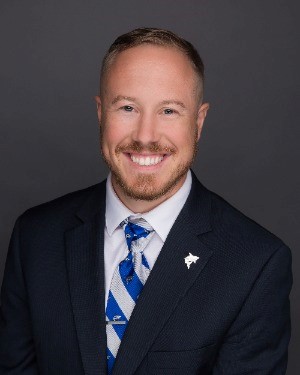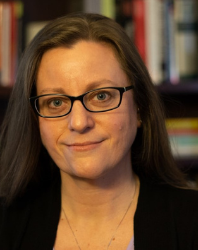Become a Better Communicator, Writer, and Instructor
The Master of Arts in Composition, Rhetoric, and Digital Media (CRDM) from Nova Southeastern University provides students with a foundation for conducting and presenting research, applying rhetorical theories, teaching writing, and producing digital media. Through specialized coursework and experiential learning in the history, theory, and production of composition, rhetoric, and digital media, you will develop expertise researching and composing in a range of professional genres.
As part of NSU's program, you have the opportunity to work with a variety of local organizations and university departments and programs, present and publish research independently and collaboratively with faculty and peers, and contribute to NSU publications such as Digressions, the student-run literary and art magazine.
CRDM is built with your long-term success and employability in mind. The CRDM program prepares you for a career in writing, publishing, teaching, communication, and doctoral study. CRDM graduates are prepared to pursue doctoral studies in Composition and Rhetoric and related disciplines, as well as a variety of careers in publishing, media production, public relations, and education.
Did You Know?
According to the Bureau of Labor Statistics, demand for editors and writers will keep pace with other professions over the next several years, while demand for certain specialties, such as technical writing and public relations, will increase 7-10% faster than the average for all occupations from 2019-2029. Additionally, the composition course requirement of most colleges and universities nationwide ensures the continued demand for qualified faculty in composition and rhetoric.
Upon successful completion of the SoFlo Writing Project’s Summer Institute, applicants to NSU’s M.A. in Composition, Rhetoric, and Digital Media program may apply to receive credit for up to two elective courses (6 credits) towards the 30 credits required for the M.A. degree.
Quick Facts
Career Outcomes
Learning Outcomes
A graduate with an M.A. in Composition, Rhetoric, and Digital Media graduate is expected to:
- Demonstrate advanced knowledge of what effective writing is in a variety of rhetorical contexts.
- Evaluate writing curricula and pedagogical practices.
- Design successful digital media using rhetorically appropriate strategies.
- Produce and present original research based on the theories and methods applicable to composition, rhetoric, and digital media.
Composition, Rhetoric, and Digital Media Curriculum
View PDFFor specific course requirements, refer to the “Master of Arts in Composition, Rhetoric and Digital Media Program (M.A.)" in NSU's Halmos College of Arts and Sciences Graduate Student catalog.
The academic program and curriculum requirements listed on this page are from the NSU Halmos College of Arts & Sciences Graduate Student Catalog. Students are bound by policies and curricula published in the catalog in effect the semester they enter the university unless an agreement is made with appropriate NSU administration officials allowing them to abide by policies published in a later catalog.
Admissions Requirements
| 1 | Undergraduate GPA of +2.85 above to Apply |
| 2 | Completed NSU Graduate Application and $50 Application Fee |
| 3 | Submit a 'Resume' OR 'Curriculum Vita' |
| 4 | Interview with program leadership |
| 5 | Two content samples: Applicants should submit a sample from two categories, with written samples not to exceed five pages (each) and media samples not to exceed the equivalent of 3 minutes (additional guidance for media samples can be provided) |
Acceptable Content Samples
- Academic paper (ex., analytical essay, research paper, etc.)
- Journalistic content (ex., news or feature article, column, portrait, etc.)
- Public relations content (ex., social media campaign portfolio, press release portfolio, etc.)
- Digital media content (ex., reels, podcasts, news packages, game narrative, etc.)
- Teaching materials (ex., syllabus, assignment sheets, in-class activities, etc.)
- Technical writing (ex., manual, proposal, white paper, etc.)
- Other, with permission from the program
Graduate Open House
Join us on Thursday, October 17 at 12:30 p.m. EST to learn more about Composition, Rhetoric, and Digital Meda, including careers within the field, NSU graduate degree offerings, and the application process.
This event is free and open for all to attend. You may register for the Open House HERE.
Program directors and department faculty from the Department of Communication, Media, and the Arts (DCMA) and NSU Halmos College of Arts and Sciences Graduate Admissions will be in attendance to answer your questions about your program(s) of interest.
Program Director and Admissions Staff
Where Will a M.A. in Composition, Rhetoric and Digital Media Take You? Hear From Our Alumni.
You and NSU – the Sky’s the Limit
Your support and involvement helps us create, investigate, and improve the world around us. Join us in our passion to bring out the best in our students, our society, our environment, and our economy.





